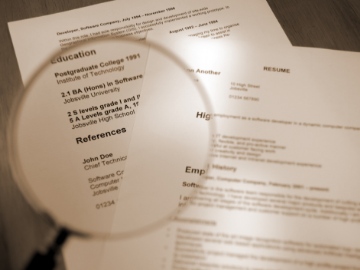What is a Resume? Definition and What to Include

As a job hunter, your resume is one of your most powerful marketing tools. It's what recruiters review to read all your achievements and experience before meeting or talking to you in person. With something so impactful to your future, you must first answer "what is a resume" to know how exactly to make the perfect one. Remember, the only purpose of a resume is to get an interview.
What is a Resume?
When you look for a job, you'll often hear the word resume. This formal document you submit to recruiters details your education, skills, achievements, and work experience.
You may also hear about the curriculum vitae or CV. While both documents are quite the same in purpose, the main difference is their length. A CV is longer and thoroughly lists your career from the beginning until now. Meanwhile, a resume is a shorter version of a CV.
As a self-marketing tool, creating a resume means inventorying everything you've learned and done so far. This process of making an experience map and mining your data acts as a good starting point. You get to understand the skills and experiences you've learned or picked up along the way
What to Include in a Resume?
Now that the question "what is a resume" has been answered, it's time to create yours. Knowing the parts of a standard resume will help you understand what most recruiters look for. Below is a list of the common points and sections to include in a resume:
-
Contact information
The first thing hirers should see on your resume is your personal information: name and contact details. These will be used to get in touch with you. You can also share your relevant social media pages in this section. Aside from being a point of contact, they can also learn more about your work here.
-
Profile
This may be optional, but a profile section is a good way of giving your resume a little personality to help you stand out. Think of it as a summary of your career. It mentions your field of expertise, what you look for in your next job opportunity, and perhaps a sneak peek of life outside work.
-
Education
The education section is where you mention the schools you've attended and graduated from, including your major and minor degrees. You can also add in your GPA, academic accolades, or honors.
-
Work experience
Most of the information your recruiters look at the most is in the work experience section. Ideally, it should be a timeline of your career, including all the companies you've worked for, the duration, job titles, and duties. You can also place internships here.
-
Skills
Recruiters don't just consider the work experience; they also look at your skills. While having the necessary work experience for the position is nice, some employers also base their judgment on your skills.
Resume skills are usually separated into hard and soft skills. Hard skills refer to the technical capacities that fit the job description. Examples are software knowledge and familiarity with certain tools and equipment.
Soft skills, meanwhile, are traits that are transferable to any industry. Common soft skills include collaboration, leadership, critical thinking, and problem-solving.
You're Hired!
Creating an effective resume is the best way to have a good application experience. Knowing what to include in a resume can make or break recruiters' first impression of you.
With your resume at hand, what are you waiting for? Find your next job opportunity with Career!


